
If I’d earned a dollar every time I circled a “but” comma error in red ink during my teaching years, I’d be living in luxury now. No such luck, sadly.
In fact, it was the single most common punctuation mistake I saw in my students’ writing. But here’s a tip: most grammar textbooks make it sound far more complicated than it actually is.
You don’t need to be a grammar fanatic to get this right; you just need to remember what I call the two-part “Stand-Alone Rule.”
While there are technically three rules, I discovered my students gained 90% control just by mastering the first two. Here is the framework I used to help them control the pesky “but” comma.
My two simple “but” comma rules
The doubt about when to use a comma usually comes from not knowing where a sentence ends. If you use a simple “Stand-Alone Test,” you’ll always get it right.
1. Use a comma BEFORE “but” if both sides are independent. If the words before “but” and the words after can both stand alone as complete sentences, you need a comma.
Example: I wanted to go out for lunch, but my local café was closed.
The Test: I wanted to go out for lunch. (Can stand alone) / My local café was closed. (Can stand alone). The comma is necessary.
2. No comma if the second part is a fragment. If the second half of your sentence doesn’t have its own subject and verb, it’s just a phrase (or fragment). In this case, leave the comma out.
Example: The restaurant was fantastic but very expensive.
The Test: The restaurant was fantastic. (Can stand alone) / Very expensive. (A fragment). Don’t use a comma.
Two simple “but comma” rules
There are two basic and simple rules to follow for comma usage. (I’ll cover the third rule a little later.)
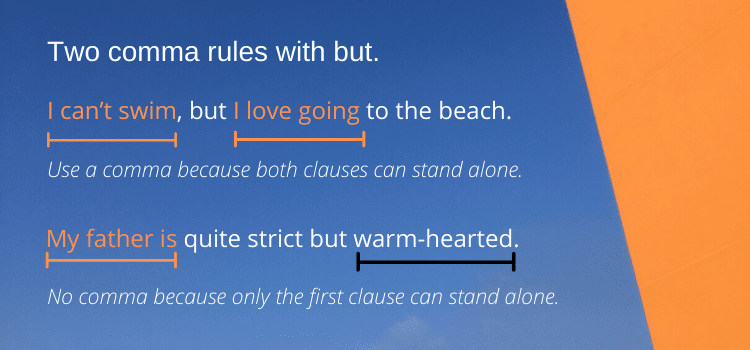
1. You insert a comma when the two halves of your sentence can stand alone.
2. You omit the comma when the two sentence halves can’t stand alone.
When do you use a comma before but?
To make sure you are correct, check if your sentence joins two independent clauses.
In this case, both clauses will have a subject and a verb. If each part of your sentence is independent, they can stand alone as complete sentences.
Then, but, which is your coordinating conjunction, needs a comma to separate your two clauses. Here are some examples of when to use a comma.
I wanted to go out for breakfast but my local café was closed. Incorrect
I wanted to go out for breakfast, but my local café was closed. Correct
This is because each part of the sentence can stand alone as an individual and complete sentence.
Each one has a subject and a verb, so you are connecting two independent clauses.
I wanted to go out for breakfast. Complete My local café was closed. Complete
More examples of correct usage:
He left home early, but he forgot to take an umbrella. Correct
My sister is leaving for Canada tomorrow, but she will return in three weeks. Correct
Susan doesn’t like sardines, but her sister loves all kinds of fish. Correct
We wanted to go to Spain for our holiday, but the hotels are too expensive in summer. Correct
I meant to buy some bread, but I forgot to stop at the bakery. Correct
When do you omit the comma?
If the second part of a sentence is a phrase or a fragment, there is no comma.
This happens when you cannot make a logical sentence from the second clause because it depends on the first clause for its meaning.
It is because there is no subject with a verb in the second clause.
Look at these examples.
The restaurant was fantastic, but very expensive. Incorrect
The restaurant was fantastic but very expensive. Correct
You can see that the second phrase is not a complete sentence.
The restaurant was fantastic. Complete Very expensive. Incomplete
More examples:
Studying grammar is hard sometimes but interesting all the same. Correct
I went to the concert but left early with a headache. Correct
The rest of the sentence was easy to read but had poor spelling. Correct
Going to the gym is tough some mornings but good fun all the same. Correct
He played as well as he could but lost the match. Correct
The example sentences above show that there is no subject with a connecting verb in the second clause.
Be careful, though, because there can be a verb. If the verb doesn’t have a subject, it is not an independent clause.
You can see this is the last example sentence above with the verb lost.
The third rule: Using a comma after “but” (The interrupter)
If you start a sentence with but, you don’t need to use a comma.
You might want to refresh your memory about starting a sentence with but.
You only add one when there is an adverbial clause or an extra word or phrase following it.
Think of it at the beginning of a sentence as marking an interruption to a sentence.
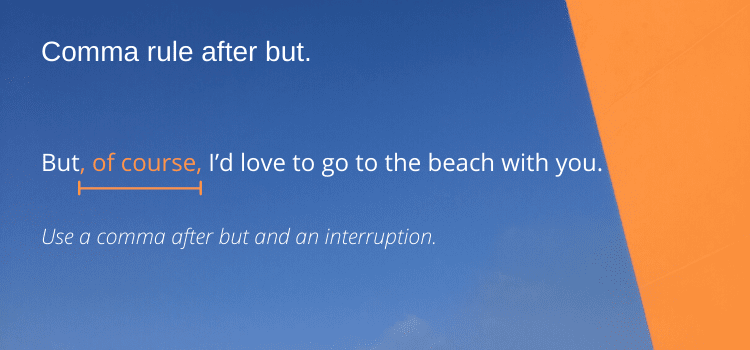
For example:
But, yes, indeed, there is plenty of space in the car for you.
But, on the other hand, I might go to Spain instead.
I was going to buy tickets for the new show, but, in fact, my husband had already bought them for me.
But, if you really want to know the truth, I can’t stand my boss.
College isn’t easy, but, well, you know how it is.
The good news about the but comma rule
Does the comma go before or after but? Now you know the answer.
You have mastered the rule. I told you it was super easy.
Here’s a quick summary of the rule.
When do you use a comma before but?
Use a comma before but when the two sentence halves can stand alone.
When do you omit the comma before but?
Don’t use a comma before but when the second clause can’t stand alone.
When do you need a comma after but?
Use a comma after but only when it is followed by an interruption.
I have more good news for you.
You can use the same three-part rule for a sentence with and, or, yet, and so.
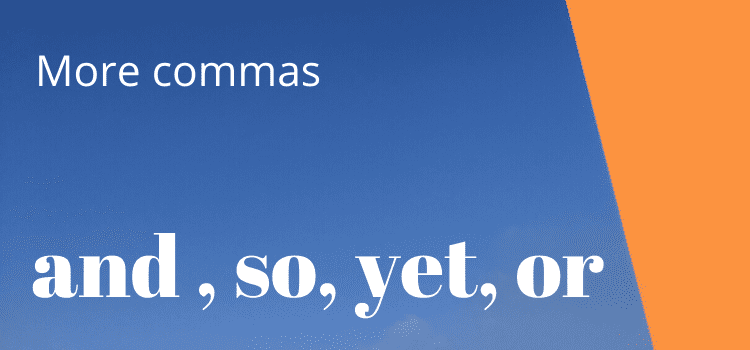
Examples before and, so, yet, and or
He went to London for two weeks, and he stayed at an expensive hotel.
Susan loves her cat, and she lets it sleep in her bed.
Mary loves her dog, yet she doesn’t let it onto her bed.
There was no chance of changing our flight, so we had to stay for two more days.
Tim missed his train, so he was two hours late for the meeting.
You can try for a free upgrade, or you can pay extra to be sure you get it.
My advice is don’t pack too much, or you will be charged for excess baggage.
Examples after and, so, yet, and or
He went to London for two weeks, and, just like him, he stayed at an expensive hotel.
Susan loves her cat, and, naturally, she lets it sleep in her bed.
Mary loves her dog, yet, like many dog owners, she doesn’t let it onto her bed.
There was no chance of changing our flight, so, unfortunately, we had to stay for two more days.
A comma after and before however
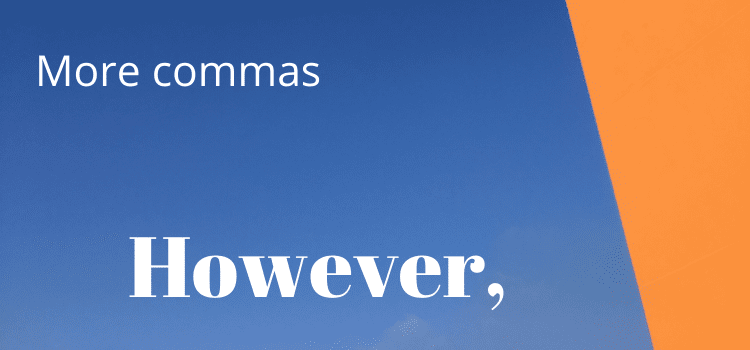
Because you can use however as a synonym for but, it is worth noting this extra related rule.
Does the comma go before or after however? It can be before, or before and after.
If you use however, therefore, furthermore, or moreover at the beginning of a sentence, there is always a comma after the adverb.
However, she expects to finish her novel by summer.
Furthermore, we will buy twenty copies of your new book.
Therefore, we will be an active promoter of your new novel.
Moreover, we would like to write a review for our newspaper.
When you are joining two independent clauses, however, take care.
You could wrap the word however in two commas. But for conjunctive adverbs, it is always better to use a semicolon.
I plan to finish my book by summer; however, it could be a little later.
I received your suggested edits; therefore, I’ll take your advice and start on my second draft.
The edits were incomplete; moreover, it seems that the proofreading was poor.
You missed so many errors; therefore, I think I will need to find a new editor.
If you use these adverbs for emphasis, it is quite easy. Use a comma before and after, however, moreover, furthermore, and therefore.
You can, however, proceed with the corrections.
It was, moreover, a very poor effort.
It is, furthermore, out of my control.
You may, therefore, continue with the project.
Summary
It is easy to learn the punctuation rules for coordinating conjunctions.
But you can also use a grammar checker to help you check and correct your comma usage if you are not sure.
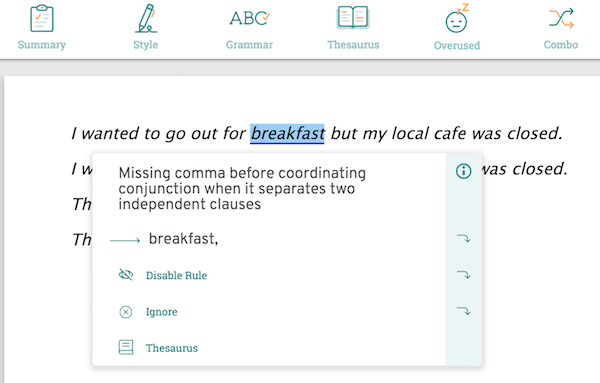
Just take a few minutes to make sure you understand the basic rules, and then lock them away in your memory.
If there is a subject with a verb in the second clause, use a comma. If there is no subject with a connecting verb, omit it.
Yes, there are some complicated rules that can cause confusion. The ones for cumulative and coordinate adjectives or a comma splice can be a bit tricky.
It is true that punctuation can be complex and often open to interpretation. It is especially so for the Oxford Comma.
Luckily, the rules in this article are easy. So you can leave all the other comma rules for another day.
I’m always reminded of this quote when I think about punctuation.
“I spent all morning putting in a comma and all afternoon taking it out.” – Oscar Wilde.
Related reading: Use A Comma Before And In A List
Share This Article
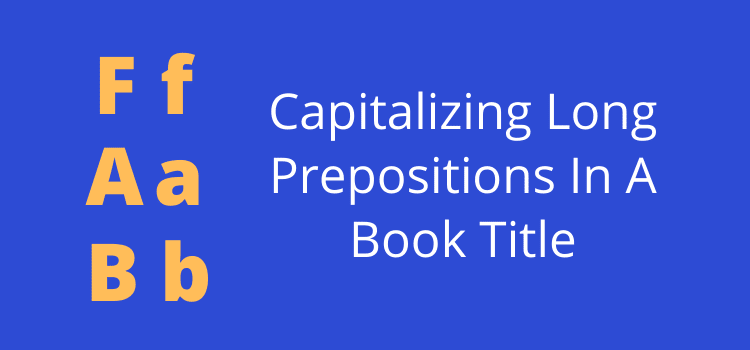
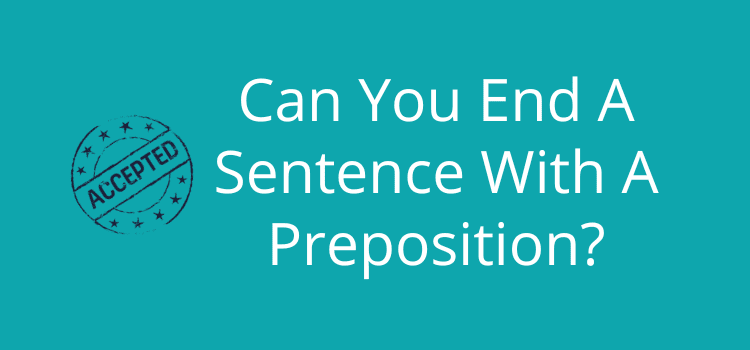
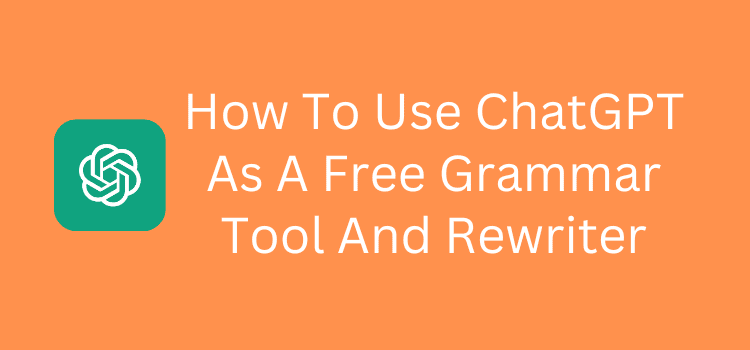
Thank you for a good summary of the comma rules: clear explanations and lots of examples.
Just a couple of thoughts.
First, you seem to equate (or being not careful) a dependent clause with a modifier. The following example was given to illustrate the rule you provided earlier (which is “If the second part of a sentence is a dependent clause, there is no comma.”): “The restaurant was fantastic but very expensive.” However, “very expensive” isn’t a dependent clause, is it? It isn’t even a clause.
Also, you stated: “If you use, however, therefore, furthermore, or moreover at the beginning of a sentence, there is always a comma after the adverb.” This is really confusing.
Firstly, why is there a comma before however? You’re listing four adverbs, right?
Secondly, the adverb however at the beginning of a sentence does not always require a comma. Another commenter pointed it out already. So, for those who don’t read comments, the unchanged rule is misleading.
Thirdly, since the three other adverbs (furthermore, moreover and therefore) are always followed by a comma regardless of their location in a sentence, the wording of the rule is even more misleading because it implies that they might not.
Regards.
You don’t always have to place a comma if your sentence begins with ‘However’.
Eg. However you phrase it, this doesn’t sound safe.
You’re right, Aret.
In your example, you created a dependent clause with the adverb. In this case, the comma is after the clause and not after the adverb.
The general rule for an adverb clause is that if a dependent clause begins the sentence, include a comma at the end of the dependent clause.
I think that the third sentence could use a comma after wet, tell me, am I wrong? I know grammatically I’m wrong but, my brain tells me it should be there. The mind is a terrible thing to waste, allowing it to lay dormant almost completely inactive, although, performing the customary task it habitually does every day It’s still just waning away into oblivion practically the same thing, I think It’s a little worse actually if we’re judging off of the motivation a person has to strengthen the most important organ in the human body, the most significant component ever created in the history man, every one unique, one of a kind, so, the next course of action carried is completely up to you and will determine how much being relevant in today’s society means. We, well, I tend to say I wouldn’t care what anyone thought or thinks of me, especially society. Honestly? Yeah, whatever. But it’s all just a lie, a cover-up to mask the real feeling of shame for allowing this to happen, and the fear of being left behind. I’ve been out of school for 20 years, and this is the first time I’ve thought, “am I putting my commas in the right places?” My father use to tell me, “If you don’t use it, you lose it.” A word of advice, never stop learning, knowledge is the only thing in this world that’s truly yours and can’t be taken away. If you lose it, it’s totally up to you to find it again and it may be a little harder for you to acquire this time. The moral of the story is never take your education for granted, it’s the one thing we can’t live without. Communication is key, and one vital component that keeps the world functioning daily. It’s a lot better when you can speak on any topic, and remain confident because your answers are based on facts, and beautifully well-versed, if I must say so myself. Strive for greatness in whatever you do Kawanee, set the bar for others to try to surpass, if, and, when they do, set another for yourself and, dedicate your time to achieving that goal, there’s no time spent more competently than time working on bettering yourself. Regarding the project you diligently promoted. Encouraging yourself to always give it your best shot, astonishingly touched everyone, and at the end of the day you weren’t the only one that won but, we all benefited because of your innovative self-check program that always lifted the bar to continually promote a, “keep working until it works,” attitude. That makes you a winner, a special winner that has the most rewarding of rewards, knowledge, winners are an inspiration to us all, showing we can do better and be better, so continue to do your part in carving the road to a more gifted world set up for future generations to prosper and make living just a little more comfortable and a hell of a lot less complicated. Hard work always pays off, so keep it up baby doll.
Could someone pls. reply to me with correction on punctuation (especially if there is a comma after “but” in the text below? Thank you!
“Once on his feet, Anthony had a dizzy spell but didn’t want to tell his mom for fear that she would take them home – which happened anyway, to Anthony’s regret and Victoria’s frustration because she didn’t have a turn on the ice.
I would say no comma because there is no subject before but.
Once on his feet, Anthony had a dizzy spell but didn’t (want to) tell his mom for fear that she would take them home, (-) which happened anyway, to Anthony’s regret and Victoria’s frustration who didn’t (have) get a turn on the ice.
Excellent article, thank you for helping me brush off the cobwebs from high school years. I have one big question that I think I already know the answer to, but I’m going to ask anyway.
There is an exception to the rule when you’re using dialogue right? Is the punctuation done correctly?
Ex:
“You can’t go swimming, it’s raining.”
“But, why not?” Johnny looked at his mom. “I’m just getting wet before I get wet in the pool.”
This article was very helpful, a good reminder. Thanks. But the comma quote is attributed to Oscar Wilde, not Mark Twain.
Absolutely correct, Darlene. That will teach me for relying on my memory and not checking. I have made the correction edit.